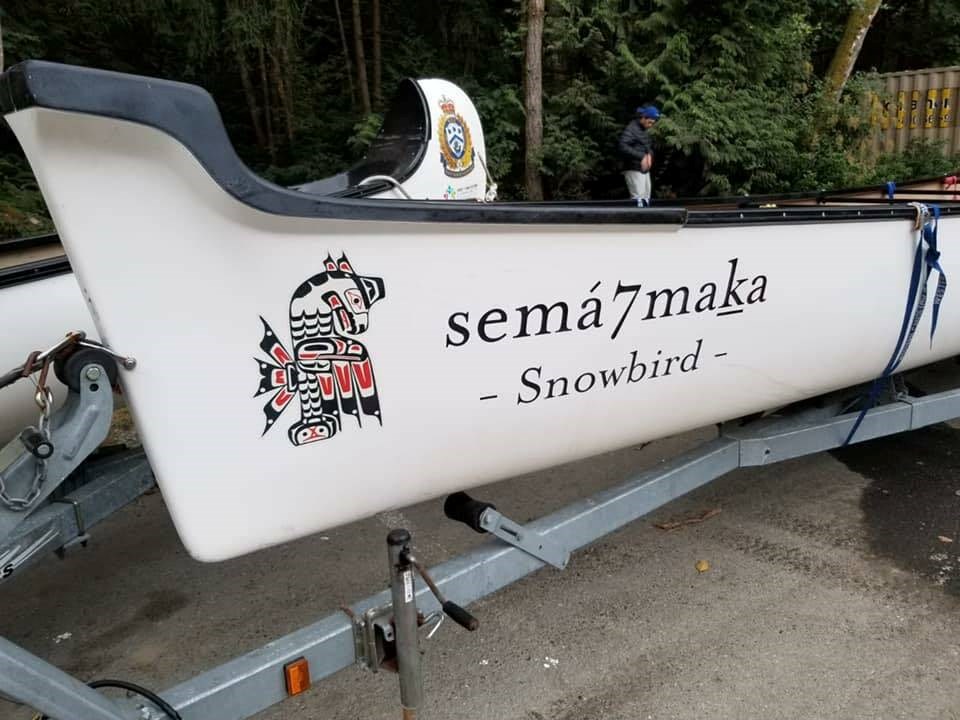It is serendipitous timing that this week’s flurry of snow will coincide with the sleeping ceremony for a canoe named Semá7maka. As the fine powder descends, Semá7maka, meaning "snowbird" in Sḵwx̱wú7mesh Sníchim (Squamish language), will be laid to rest: the canoe season will close, and the onset of winter will be officially welcomed.
The ceremony will take place at the Civic Plaza on Thursday, and will see its caretakers — members of the Sḵwx̱wú7mesh Úxwumixw (Squamish Nation) and Tsleil-Waututh Nation, the RCMP and the West Vancouver Police — come together for prayer, dance and a celebratory banquet.
“The public are invited to come along and watch, and understand what we do,” said Squamish Nation’s Joelle Johnston, who has been skipper for the canoe since its inception in 2019.
“A representative of the family will talk on how we take care of the spirit of the canoe, and how we properly lay it to rest,” she said.
“We will cleanse it with cedar boughs, moving around the canoe four times, and then, like there is with all our ceremonies, there will be a feast factor.”
The event is an opportunity for education on the land and of First Nations customs and culture. Much like with the journeys themselves, there is an open invitation for all to come along and learn.
With a mixture of First Nations community members and staff from local police forces, the "Semá7maka family" works to raise awareness of Squamish culture, and strengthen the relationship between law enforcement and those from Indigenous backgrounds.
Sometimes the journeys will be singular paddles, other times the 17-seater canoe will be at the centre of a ten-day excursion to far flung lands. This season the canoe carried youth from the Carlisle Centre, a centre that focuses on mental health and addiction issues, as far as the Adam’s Lake region, north of Kamloops.
“We’ve brought out teachers, social workers, youth groups, bankers and executives,” said Peri Mainwaring, a North Vancouver RCMP Sergeant who has been involved with the initiative since the beginning.
“No matter their background a lot of people find it’s healing to go out on the water,” she said.
“It’s always been our goal to invite anybody who wants to come out and learn with a good heart.”
Despite being a juvenile compared to its contemporaries – Semá7maka only took its first plunge in 2019 when it traversed the Powell river through the traditional territories of the Tla’amin peoples – what the canoe lacks in age, it no doubt makes up for in experience.
The oncoming season provides a well deserved rest for both canoe and the vibrant Semá7maka family alike, one that will last until springtime when Semá7maka is awakened once more.
Mina Kerr-Lazenby is the North Shore News' Indigenous and civic affairs reporter. This reporting beat is made possible by the Local Journalism Initiative.



